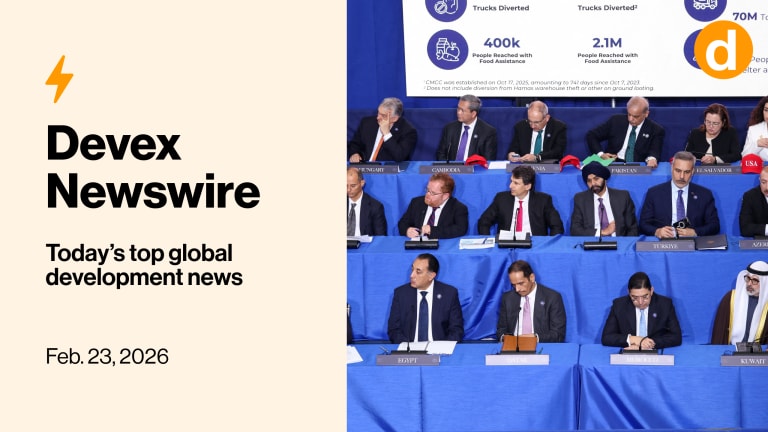
Over the last few years, the Black Lives Matter Movement and #AIDToo scandals have ushered in a period of self-reflection in the humanitarian sector and elevated calls to “decolonize” its systems. To keep up the momentum and address systemic issues, humanitarian nonprofit organizations should focus on governance: specifically, their governing boards.
Relatively small governing boards steer the world’s largest humanitarian organizations and control many of its resources. Yet, these boards are composed mostly of members from the “headquarter countries” to which they are legally accountable.
In a recent analysis we conducted for the Center for Global Development, we found that only 2% of governing board members across 10 of the largest international humanitarian aid organizations had personally experienced a humanitarian crisis or spent time as refugees.
Leaders in the sector acknowledge the sentiment — captured in the aggregated perception of aid recipients — that capacity for empathy and solidarity has degraded. NGOs aren’t held accountable to the populations they serve. Aid recipients report feeling uninformed about humanitarian services and their rights when interacting with the humanitarian system.
Altering the composition of governing boards ... could help better align governance priorities with those of aid recipients and offer a measure of accountability.
—Their trust in and control over the system is minimal; recommendations to involve community members in decision-making processes tend to be taken on a project basis, limiting their scope for involvement. In many crises, people cannot engage with local or national governments because they may be absent or at the source of the crisis. Aid recipients should have representation in NGOs at a meaningful, decision-making level, including representation on boards.
Board members strategize to raise and spend funds, hire, compensate senior staff, and set and interpret their organization’s mission — all decisions that ultimately impact humanitarian outcomes. Although there is a disparity in representation of aid recipients in governance, in our analysis, we found that 19% of board members in the group held political influence with donors and governments, which may indicate that organizations prioritize relationships with sources of revenue, regulation, and access, over aid recipients themselves.
As the seat of power in an organization, governing boards are also there to lead when faced with a crisis. This is particularly salient when an NGO is faced with allegations of abuse or exploitation affecting aid recipients. When the systemic underreporting of sexual abuse came to light, humanitarian workers called for donors to take accountability seriously. Charity commissions in headquarter capitals who represent donating publics demanded investigations, primarily to restore taxpayers’ trust.
Although governing boards may equally seek to protect an organization’s reputation, regardless of who sits on the board, it seems fair to ask: If boards had been more representative, would they have acted differently when faced with reports of abuse? Altering the composition of governing boards to make them more representative of people served by the organizations could help better align governance priorities with those of aid recipients and offer a measure of accountability.
Calls to decolonize aid are being interpreted differently across the sector. At the organizational level, training and guidance have tended to promote behavioral solutions within the purview of staff members to achieve, but that only addresses one part of the problem. Language guidance can feel overly nuanced and inaccessible to staff or others, even banning terminology that describes important power dynamics.
To truly shift the power and reform, the aid sector must grapple with the governance of its own systems, including control over its resources and steering of its missions. Colonial legacies may permeate humanitarian funding and structures; privilege is in this context the ability of organizations to turn inward and fail to examine their connection to politics as they exist today.
Representing the views of aid recipients in humanitarian NGO governance today could help shape the sector’s priorities in preparation for a future where more, not less, attention and resources will need to be brought to bear to solve some of the globe’s most pressing problems. The people facing those challenges should be part of the conversation and decision-making processes.









